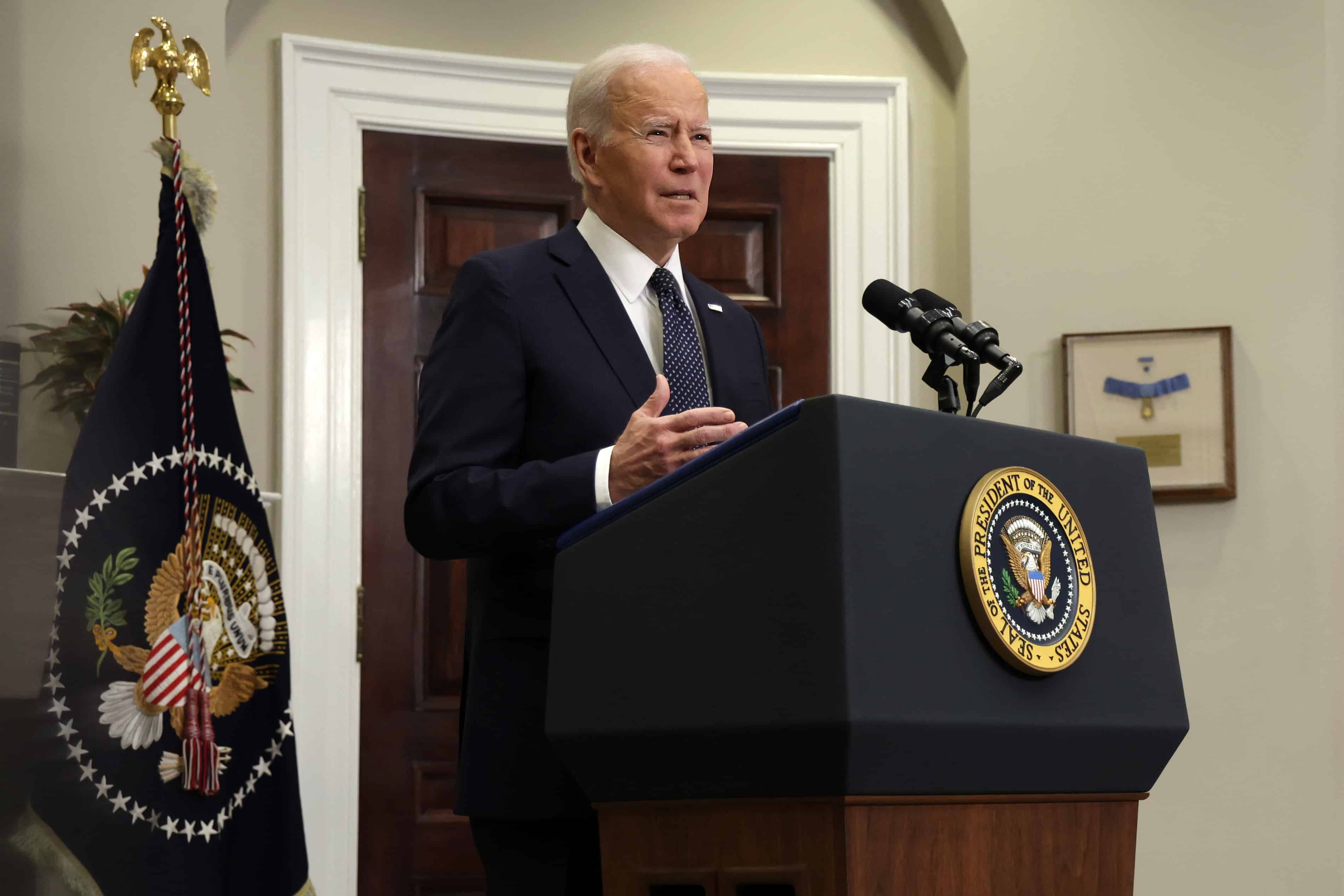US sanctions against Russia announced Tuesday include steps to starve the country of financing, although they did not go as far as some observers had expected.
Washington’s announcement came after the European Union unveiled its own sanctions in a coordinated Western effort to pressure Russian leader Vladimir Putin.
In an unusual and potentially harsh step, Washington blocked Moscow from raising new money from Western banks by prohibiting trading in Russian debt as of March 1.
The measures target Vnesheconombank (VEB), Russia’s state development bank, and Promsvyazbank (PSB), another state-supported institution. The US Treasury says both hold tens of billions of dollars in assets and “play specific roles to prop up Russia’s defense capability and its economy.”
Washington also penalized Russian oligarchs and their families, parts of Putin’s inner circle who “pillage the Russian state, (and) enrich themselves… at the expense of the Russian people,” the Treasury Department said in a statement.
The “full blocking sanctions” on VEB and PSB, and their subsidiaries, as well as the moves against five individuals, will freeze any of their assets held in the United States, and they will also be prohibited from using the US banking system.
Washington’s response did not seem to go as far as the European Union, nor as far as some expected.
But US President Joe Biden said Washington could ratchet up the pressure, going beyond the “first tranche” of sanctions if Russia “continues its aggression” in Ukraine.
The initial US penalties cover fewer financial institutions than the EU’s, omitting the country’s largest and most important bank Sberbank, but did not sever Russia from the SWIFT system used to move money around the globe.
Nor did Biden resort to export controls, which would have cut Russian firms off from key high-tech equipment and software, which some analysts said was a possibility.
A senior US administration official said “all options remain on the table” including targeting Putin himself.
“We are starting high. These are severe costs we are imposing,” the official told reporters. “The pain is building.”
And Treasury Secretary Janet Yellen said in a statement, “We continue to monitor Russia’s actions and if it further invades Ukraine, the United States will swiftly impose expansive economic sanctions that will have a severe and lasting impact on Russia’s economy.”
Andrew Lohsen, a Russia expert at the Center for Strategic and International Studies, said the steps also seem to fall short of what Biden had threatened, which could encourage Putin.
The measures are “not going to compel Russia to change course. It’s clear that the administration’s just trying to keep some options in their back pocket in case there’s an escalation,” Lohsen told AFP.
“I’m unconvinced that this is enough to deter Russia from taking further steps to nip away at Ukraine’s sovereignty.”








